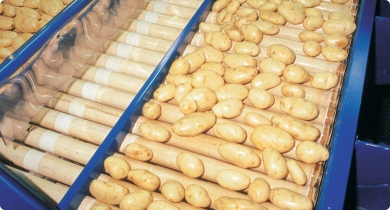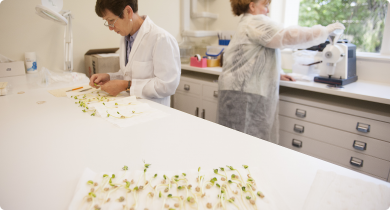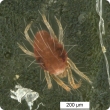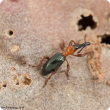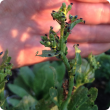Plant biosecurity
The mission of Western Australia's plant biosecurity programs is to safeguard plant resources from exotic and established pests and diseases. The Department of Agriculture and Food, Western Australia (DAFWA) has adopted a 'biosecurity continuum' approach with pre-border, border and post-border biosecurity strategies as integral components of this approach.
The aim of DAFWA’s approach is to identify key threats to productivity, sustainability and market access and outline preventive and response strategies.
The management of biological risks to market access, product safety, quality, productivity and sustainability is a shared responsibility and can be managed together and cost-effectively by means of partnerships between industry, community and government.
DAFWA’s biosecurity policies and operations are targeted to facilitate safe trade, tourism and commodity movement whilst reducing exposure of the State's plant resources to exotic biological risks.
Articles
Filter by search
Filter by topic
- Pests, weeds & diseases (6) Apply Pests, weeds & diseases filter
- Crops (6) Apply Crops filter
- (-) Remove Vegetables filter Vegetables
- (-) Remove Horticulture filter Horticulture
- (-) Remove Pests filter Pests
- Potatoes (3) Apply Potatoes filter
- Diseases (3) Apply Diseases filter
- Pest insects (2) Apply Pest insects filter
- Nursery & cutflowers (1) Apply Nursery & cutflowers filter
- Sweet potato (1) Apply Sweet potato filter
- Grapes & wine (1) Apply Grapes & wine filter
- Fruit (1) Apply Fruit filter
- Mites & spiders (1) Apply Mites & spiders filter

